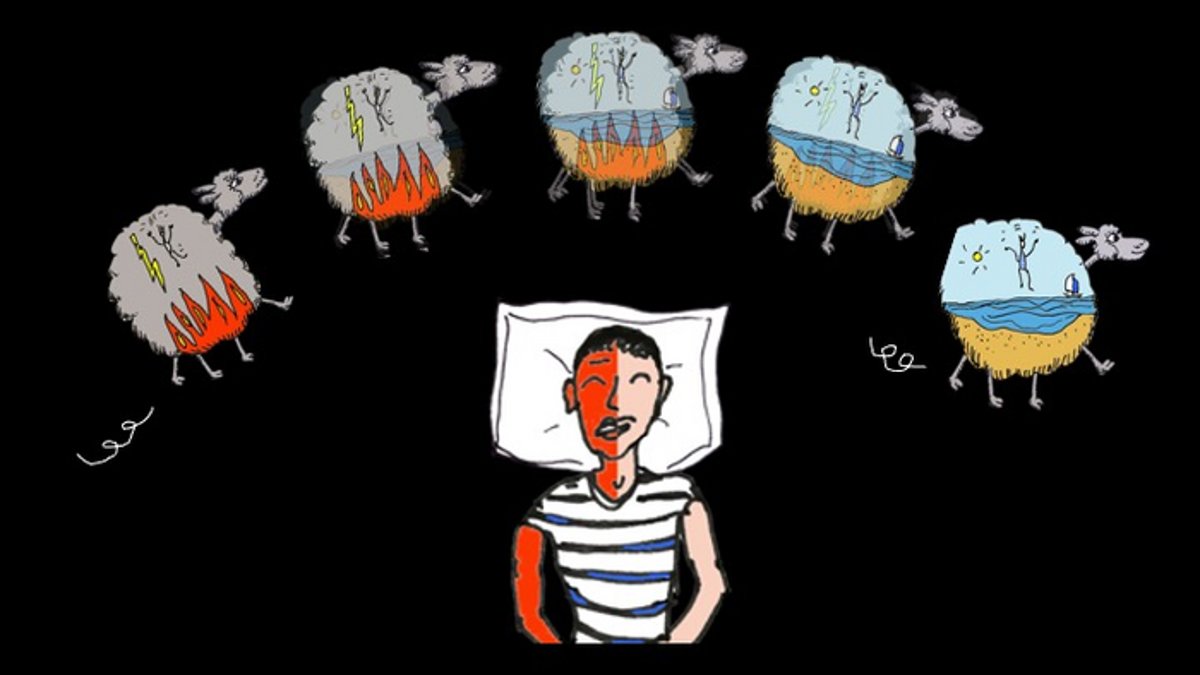
Frequent bad dreams during childhood may be linked to an increased risk of developing cognitive impairment in later adulthood, according to a new study.
Children who experienced persistent nightmares between the ages of seven and 11 could be nearly twice as likely to develop cognitive impairment by age 50, showed the results from the study published on Sunday in The Lancet’s eClinicalMedicine journal.
Cognitive impairment may lead to conditions like dementia or Parkinson’s disease (PD).
Previous studies have hinted that having regular distressing dreams during middle-age adulthood is linked with an increased risk of developing cognitive impairment or PD decades later.
In the new study, Abidemi I Otaiku from the University of Birmingham in the UK assessed this relationship in children by analysing data from nearly 7,000 of them from a 1958 British Birth Cohort Study.
“This is the first study to investigate the association between distressing dreams in childhood and the risk of developing cognitive impairment or PD in adulthood,” Dr Otaiku noted.
The data was based on reports from mothers who were asked to report whether their child had experienced “bad dreams or night terrors” in the previous three months.
When these children grew up, they were asked to report whether a doctor had ever diagnosed them with a chronic medical condition.
Of the 6,991 children, 262 were found to have developed cognitive impairment by age 50, and five had been diagnosed with PD at the same age.
Dr Otaiku found that, compared to the children who never had distressing dreams, those who had persistent distressing dreams had an 85 per cent increased risk of developing cognitive impairment of PD by age 50.
The more regularly the children experienced bad dreams, the more likely they were to develop cognitive impairment, he wrote in The Conversation.
“Having persistent distressing dreams during childhood may be associated with an increased risk of developing cognitive impairment or PD in adulthood,” Dr Otaiku wrote.
He called for further studies to confirm the findings and to assess any possibility that reducing bad dream frequency during early life could provide an opportunity to prevent both neurological conditions.
“If these findings are replicated in future studies, and the association is shown to be causal, it is possible that early treatment of distressing dreams could become a primary prevention strategy for dementia and PD,” he added.
Dr Otaiku speculated that distressing dreams in some individuals may be an early manifestation of conditions like PD, dementia or Alzheimer’s disease that occur due to degradation of right frontal brain regions required for downregulating negative emotions during rapid eye movement (REM) sleep dreaming.
“This hypothesis would be consistent with a recent study which demonstrated that the frequency of distressing dreams in adults with PD, was positively correlated with atrophy of grey and white matter in their right frontal lobes,” he wrote.
The study also theorised that there may be common genetic factors that predispose some individuals to distressing dreams and to dementia and PD with previous research hinting that nightmare frequency is a “highly heritable trait”.
Citing a recent preprint, Dr Otaiku pointed out that one of the two genes shown to confer an increased risk for developing nightmares may also confer an increased risk for developing late-onset AD.
However, the findings also have some limitations, including that the observations are correlational and may have other contributing factors.
The children’s dream status in the study was determined by maternal reports rather than self reports as well.
“In summary, this study provides evidence for the first time that having distressing dreams during childhood, may be associated with an increased risk of developing cognitive impairment or PD during adulthood,” Dr Otaiku concluded.







